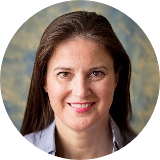Lien vers notre conférence en ligne aujourd’hui à 15h00
L’environnement des services en ligne est sur le point de subir un changement radical. Une nouvelle réglementation européenne est en vue avec la nouvelle législation sur les services numériques qui vise à moderniser le cadre juridique actuel de ces services. Mais quel sera l'impact de ce projet de loi sur le secteur audiovisuel ?
L’heure est venue de se pencher sur les propositions de ce nouveau paquet législatif. C'est pourquoi l'Observatoire européen de l'audiovisuelvous invite à cette conférence en ligne gratuite pour une première approche de la nouvelle législation sur les services numériques. Cette conférence est la septième édition de la traditionnelle « série de Bruxelles » de l'Observatoire qui se tient chaque année dans la capitale belge. Pour des raisons évidentes, l'événement de cette année se déroulera en ligne le jeudi 11 février de 15 h 00 à 17 h 00, heure de Bruxelles/Paris. L'inscription est gratuite, il suffit de cliquer sur le lien ci-dessus.
En ce qui concerne le calendrier de cette nouvelle législation, une consultation publique a été lancée en 2019 et sur des thèmes tels que la protection et la sécurité des utilisateurs en ligne, la responsabilité des services numériques « contrôleurs d’accès », la publicité en ligne et le renforcement du marché unique numérique. Les deux nouveaux projets de loi de ce paquet législatif, à savoir la loi relative aux services numériques et la loi relative aux marchés numériques, ont été publiés le 15 décembre 2020.
En 2021, le Parlement européen et les États membres devraient donc discuter des propositions de la Commission dans le cadre de la procédure législative ordinaire.
Susanne Nikoltchev, directrice exécutive de l'Observatoire, estime que « l'Europe a atteint une étape clé dans la préparation de cette nouvelle réglementation. » Elle considère que la conférence de l'Observatoire constitue « un forum d'experts pour une première analyse détaillée de l’incidence des nouvelles règles pour le secteur audiovisuel européen. »
L'Observatoire présentera tout d’abord une vue d'ensemble de la situation, puis des discussions approfondies avec un panel d’experts suivront, ainsi que des échanges avec notre public.
Tous les journalistes sont invités à nous rejoindre. La langue de travail est l'anglais.
Meet our expert panel
 Joan Barata, Stanford Law School
Joan Barata, Stanford Law School
Joan Barata is an international expert in freedom of expression, freedom of information and media regulation. As a scholar, he has spoken and done extensive research in these areas, working and collaborating with various universities and academic centres, from Asia to Africa and America, authoring papers, articles and books, and addressing specialized Parliament committees. He was Principal Adviser to the Representative on Freedom of the Media at the Organization for Security and Cooperation in Europe (OSCE), as well as Secretary General of the Catalan Audio-Visual Council in Spain, while also being a member of the Secretariat of the Mediterranean Network of Regulatory Authorities. As an international expert, Joan has provided advice to international organizations, NGOs, Governments, legislators and regulators in most regions of the world, including Africa, Asia and Latin America. Joan spends most of his time leaping from one continent to the other, having one constant in the ever-changing landscape: his awesome kid in Barcelona.
 Richard Burnley, European Broadcasting Union (EBU)
Richard Burnley, European Broadcasting Union (EBU)
Richard Burnley joined the EBU in 2010, he was subsequently appointed Head of Legal Regulatory Services in 2012 before taking the position of Legal Director on 1st July 2016.
Prior to joining the EBU, Richard was a Senior Legal Advisor at the Office of Communications (the UK media and telecommunications regulator) and before that, an Associate in the EU & Competition Department of a global law firm in Brussels and London.
He also worked at DG Competition of the European Commission. Richard studied law at King's College, London University and at the Humboldt University in Berlin. He holds a PhD in EU law from the European University Institute in Florence.
Francis co Javier CABRERA BLÁZQUEZ, European Audiovisual Observatory
co Javier CABRERA BLÁZQUEZ, European Audiovisual Observatory
Francisco Javier Cabrera Blázquez is a Legal Analyst in the Department for Legal Information of the European Audiovisual Observatory and Deputy Editor of IRIS – Legal Observations of the European Audiovisual Observatory. He began his legal training at the University of Castilla-la Mancha and went on to obtain a further qualification (LL.M. in German Law) at the Institute for European Law of the University of Saarland, where he specialised notably in Intellectual Property Law.
 Maja CAPPELLO, European Audiovisual Observatory
Maja CAPPELLO, European Audiovisual Observatory
Maja Cappello joined the European Audiovisual Observatory, part of the Council of Europe in Strasbourg, as Head of the Department for Legal Information in 2014. Set up in December 1992, the Observatory's mission is to gather and diffuse information on the audiovisual industry in its 41 member states. Since June 2020 she is also member of the Advisory Board of the European Digital Media Observatory (EDMO).
Before joining the Observatory, Maja Cappello worked for the Italian regulator AGCOM from 1998 and was Head of AGCOM’s Digital Rights Unit of the Media Services Directorate. She was also Vice President of EPRA (European Platform of Regulatory Authorities) from 2011 to 2014.
 Mark Cole, University of Luxemburg, Director for Academic Affairs, EMR
Mark Cole, University of Luxemburg, Director for Academic Affairs, EMR
Since January 2015, Mark D. Cole is Professor for Media and Telecommunication Law at the University of Luxembourg, where he previously was Associate Professor for the Law of the New Information Technologies, Media and Communications Law since 2007. He is also Course Director for the Master in Space, Communication and Media Law (LL.M.) and Faculty Member of the Interdisciplinary Centre for Security, Reliability and Trust (SnT). Since July 2014, he holds an additional position as Director for Academic Affairs at the Institute of European Media Law (EMR, Saarbrücken/Berlin/Brussels).
 Celene Craig, Broadcasting Authority of Ireland (BAI)
Celene Craig, Broadcasting Authority of Ireland (BAI)
Celene Craig is Deputy Chief Executive of the Broadcasting Authority of Ireland (BAI) and was previously Chairperson of the European Platform of Regulatory Authorities (EPRA) until May 2019. A significant dimension of her work has been her involvement in the formulation and implementation of a range of broadcasting-related policies. In recent years, she has also had responsibility for the remit and financing aspects of the regulation of public service broadcasters in Ireland. She is an active participant in European fora on audiovisual policy matters.
 Pauline DURAND-VIALLE, FERA - Federation of European Screen Directors
Pauline DURAND-VIALLE, FERA - Federation of European Screen Directors
Originally from Paris, France, Pauline Durand-Vialle has worked in film distribution and international sales. She joined FERA - Federation of European Screen Directors from her previous position as Deputy Manager in charge of European Affairs at La Société des réalisateurs de films (SRF), where she worked for five years. She is the Chief Executive of FERA since February 2014.
 Miriam Estrin, Google
Miriam Estrin, Google
Miriam Estrin is Policy Manager at Google, focused on access to information and content regulation around the world. She previously worked at the U.S. Department of State as Policy Director in the Office of the Special Presidential Envoy for the Global Coalition to Counter ISIL, as a policy advisor in the Office of the Special Envoy for Israeli-Palestinian Negotiations, and as special assistant to the President's Special Envoy to Sudan; and at the Brookings Institution in Foreign Policy Studies.
Miriam has degrees from The University of Texas at Austin and Yale Law School.
 Miruna Herovanu, Association of Commercial Television in Europe (ACT)
Miruna Herovanu, Association of Commercial Television in Europe (ACT)
Miruna has several years working in Brussels on intellectual property, digital and media policy. She has joined ACT after working for European press publishers for the last three years. Prior to that she had worked as an assistant in the European Parliament and for several years in the Romanian Senate. Miruna is a lawyer, has a Masters in European Law and a bachelor-in-Law from the University of Bucharest.
 Susanne Nikoltchev, European Audiovisual Observatory
Susanne Nikoltchev, European Audiovisual Observatory
Dr Susanne Nikoltchev took office as Executive Director of the European Audiovisual Observatory in July 2013. Prior thereto she was the Observatory's Head of Department for Legal Information and editor in chief of all its legal publications (since 1998).
She has been a media, telecoms, international trade and EU competition lawyer associated with the American law firm of Covington & Burling (1995-1998).
As a member of the bars of Germany and Washington D.C., she has worked in private practice in Germany, the United States and Belgium with particular exposure to audiovisual issues on the international and European level as well as on the national level.
 Martin Senftleben, University of Amsterdam, Director of IViR
Martin Senftleben, University of Amsterdam, Director of IViR
Martin Senftleben has been appointed professor of Information Law at the Faculty of Law of the University of Amsterdam effective 1 February 2020. Prior to that, Senftleben was professor of Intellectual Property at the Vrije Universiteit Amsterdam from 2007. At the same time, Senftleben also worked as a lawyer at Bird & Bird. His activities focus on primary and secondary markets for information products, the regulation of business models on these markets through intellectual property rights, and the resulting balance between intellectual property rights and limitations serving social, cultural and economic needs. Current research topics concern trademark law and the preservation of the public domain, the liability of online platforms for the infringement of trademark rights, the introduction of flexible fair use copyright limitations and the enforcement of copyright in the digital environment.
